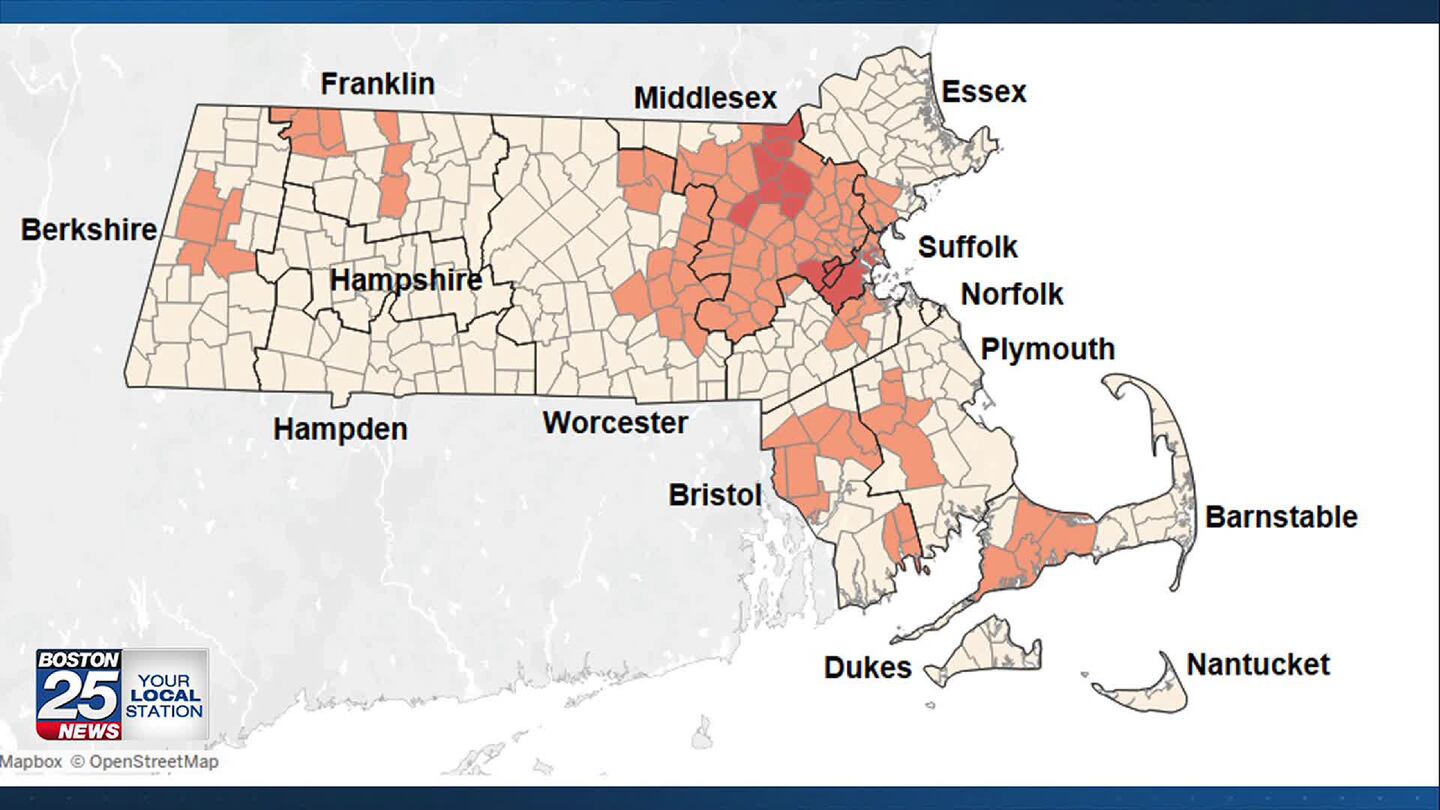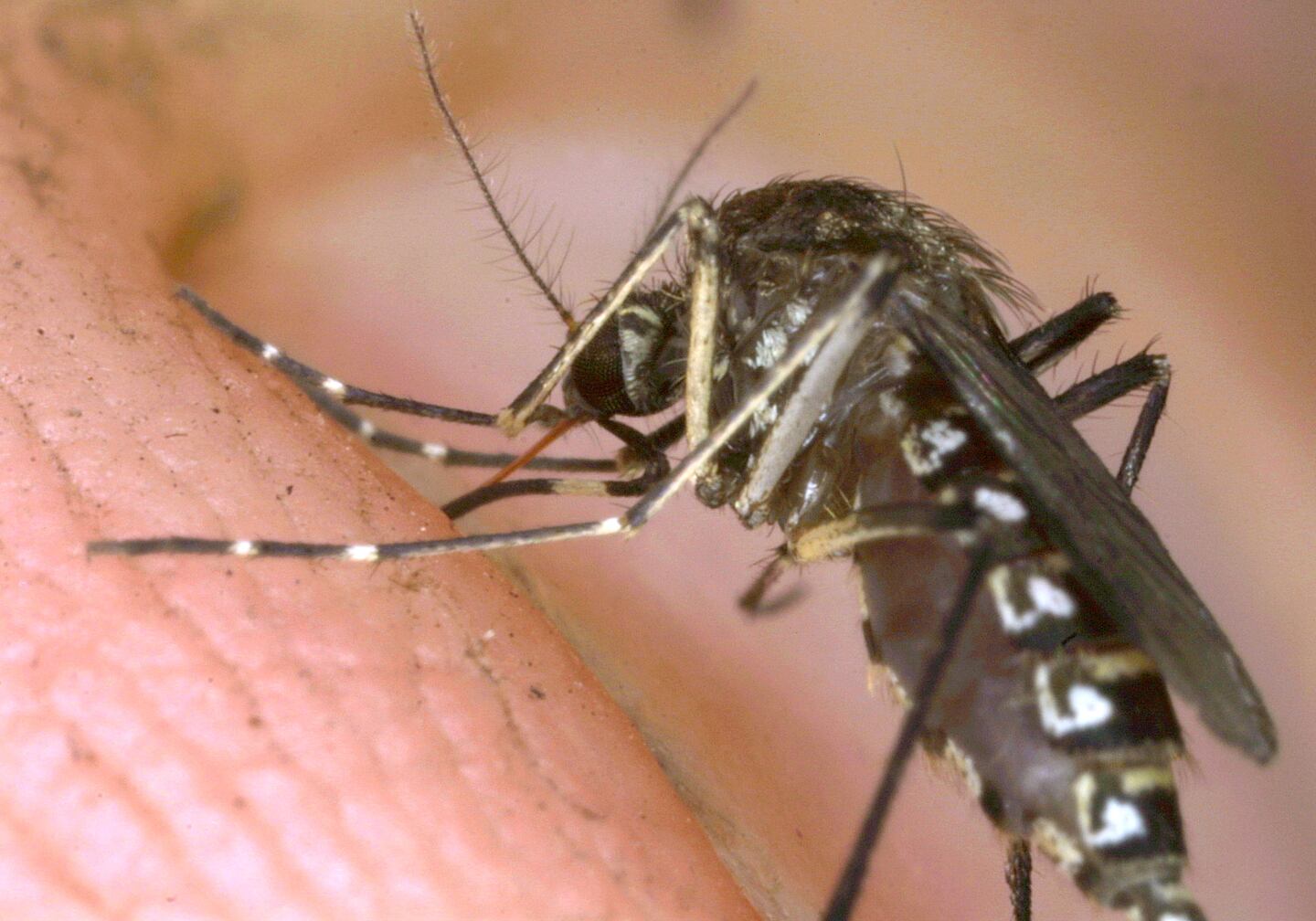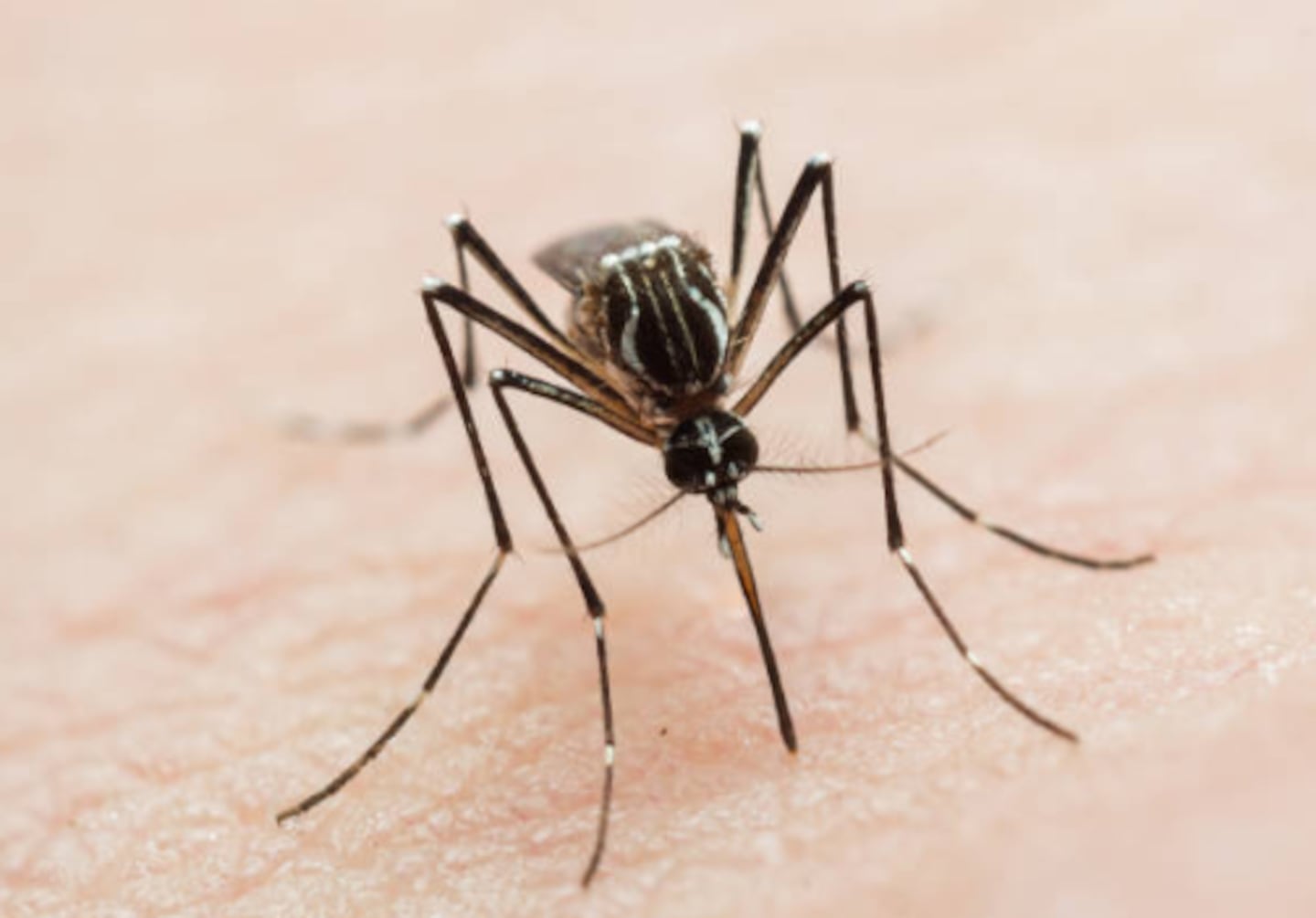BOSTON — The risk for West Nile virus is now high in 10 Massachusetts communities, state public health officials said Tuesday.
The risk level for the mosquito-borne virus has been elevated in the following municipalities: Acton, Bedford, Billerica, Boston, Brookline, Carlisle, Chelmsford, Dracut, Lowell, and Newton.
Tuesday’s announcement comes as the region is experiencing a heat wave and continued warmth and humidity, the perfect climate for mosquitoes to breed.
It also comes days after mosquitoes collected in Framingham tested positive for West Nile virus, raising the risk for the virus in that community as well.
The State Public Health Laboratory confirmed the first positive mosquito case of West Nile in Massachusetts this year on June 17.
Since then, there have been 168 West Nile virus-positive mosquito samples detected from Barnstable, Berkshire, Bristol, Dukes, Essex, Franklin, Hampden, Middlesex, Norfolk, Plymouth, Suffolk, and Worcester counties.
There has also been one animal case of West Nile virus confirmed this year in a goat in Lunenburg.
No human cases of West Nile virus have been confirmed in Massachusetts so far this year, officials said.
West Nile virus and the Eastern equine encephalitis virus are most commonly transmitted to humans through the bite of an infected mosquito.
While most people infected with West Nile virus do not experience symptoms, the virus can cause serious illness, particularly in older adults and people with compromised immune systems.
Last month, on July 23, state public health officials announced EEE was detected in mosquitoes in Massachusetts for the first time this year.
A week later, on July 30, town officials in Bridgewater announced that EEE was detected in mosquitoes in that community.
In Bristol and Plymouth counties, historically an area with EEE activity, the following 12 municipalities are currently at moderate risk: Bridgewater, Carver, East Bridgewater, Easton, Halifax, Hanson, Lakeville, Middleborough, Plympton, Raynham, Taunton, and West Bridgewater.
In Hampshire County, Belchertown, Granby, Pelham, and Ware are currently at moderate risk for EEE.
There have been seven EEE-positive mosquito samples detected and no confirmed human or animal cases so far this year.
“Both West Nile virus and EEE pose risk to the people in Massachusetts,” Public Health Commissioner Dr. Robbie Goldstein said in a statement. “The weather remains warm and somewhat humid, which increases mosquito activity. I encourage everyone to take measures to protect themselves: use mosquito repellent when outdoors, wear long sleeves and pants, and be aware of peak mosquito hours.”
West Nile virus and EEE are generally transmitted to humans through the bite of an infected mosquito.
There were 19 human cases of West Nile virus in Massachusetts reported in 2024 and no animal cases. There were four human cases of EEE in Massachusetts last year with one death and three animal cases.
“WNV findings in mosquitoes have accelerated rapidly over the last several weeks,” State Epidemiologist Catherine Brown said in a statement. “We are now in the peak time for transmission of mosquito-borne disease to people and it is important for people to know that so they can take steps to protect themselves.”
State officials shared the following tips to help prevent mosquito bites and the transmission of the virus:
Avoid mosquito bites and be aware of peak mosquito hours. The hours from dusk to dawn are peak biting times for many mosquitoes. Consider rescheduling outdoor activities that occur during the evening, after 6 p.m. or early morning. Otherwise, take extra care to use repellent and protective clothing. Mosquitoes can be active during daylight hours when the temperatures are cool.
Clothing can help reduce mosquito bites. Although it may be difficult to do when it is hot, wearing long sleeves, long pants and socks when outdoors will help keep mosquitoes away from your skin.
Apply insect repellent when you go outdoors. Use a repellent with DEET (N, N-diethyl-m-toluamide), permethrin, picaridin (KBR 3023) or oil of lemon eucalyptus [p-methane 3, 8-diol (PMD)] according to the instructions on the product label. DEET products should not be used on infants younger than 2 months of age and should be used in concentrations of 30 percent or less on older children. Oil of lemon eucalyptus should not be used on children younger than 3 years of age.
Mosquito-proof your Home and drain standing water. Mosquitoes lay their eggs in standing water. Limit the number of places around your home for mosquitoes to breed by either draining or getting rid of items that hold water. Check rain gutters and drains. Empty any unused flowerpots and wading pools, and change water in birdbaths frequently.
Install or repair screens. Some mosquitoes like to come indoors. Keep them outside by having tightly fitted screens on all windows and doors.
Protect your animals. Animal owners should reduce potential mosquito breeding sites on their property by eliminating standing water from containers such as buckets, tires, and wading pools – especially after heavy rains.
Water troughs provide excellent mosquito breeding habitats and should be flushed out at least once a week during the summer months to reduce mosquitoes near paddock areas. Horse owners should keep horses in indoor stalls at night to reduce their risk of exposure to mosquitoes. Owners should also speak with their veterinarian about mosquito repellents approved for use in animals and vaccinations to prevent WNV and EEE.
If an animal is suspected of having West Nile Virus or EEE, owners are required to report to the Department of Agricultural Resources, Division of Animal Health by calling 617-626-1795, and to the Department of Public Health by calling 617- 983-6800.
More information, including all West Nile Virus- and EEE-positive results can be found at this website or by calling the DPH Division of Epidemiology at 617-983-6800.
This is a developing story. Check back for updates as more information becomes available.
Download the FREE Boston 25 News app for breaking news alerts.
Follow Boston 25 News on Facebook and Twitter. | Watch Boston 25 News NOW
©2025 Cox Media Group








